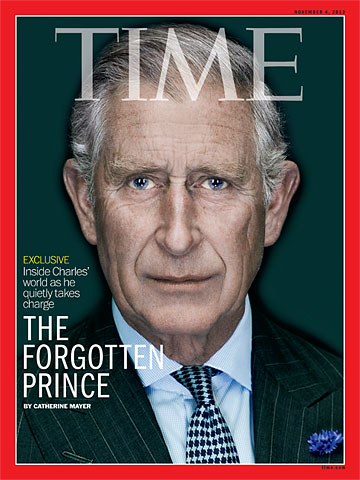
(3 of 8)
Near the end of Voltaire's 1759 satirical novel, Candide, after the eponymous hero has endured multiple privations, an old woman who has suffered alongside him wonders which is worse--to have undergone these privations or "simply to sit here and do nothing." Candide replies, "That is a hard question." He finds redemption in the honest work of cultivating his garden.
Spend any time with Prince Charles, talk to the people who know him best or look back over an existence voluminously if imperfectly documented, and it's clear that having nothing to do was, for the Prince, torture. "My great problem in life is that I do not really know what my role in life is," 29-year-old Charles told an audience at Cambridge University. Like Candide, he would discover respite from existential angst in making things grow.
As a teenager, he was shocked by 1960s Brutalist architecture. While his contemporaries envisaged golden times to come, filled with free love and unchained rock music, he foresaw a bleaker world wrought in the name of progress. "I couldn't bear the physical aspect of destroying town centers and historical places, digging up all the hedgerows, cutting down trees, making terrifying prairies covered in chemicals," he says now. "All that stuff. I thought this was insanity."
In the Duchy of Cornwall, an estate created in the 14th century to provide the heirs to the throne with an income, he found a way to promote his vision of the future, emerging as a formidable--and prescient--thought leader on environmental issues. In 1980, under his direction, the estate bought his southwest England residence Highgrove House and the nearby Duchy Home Farm and began transforming the farm into an early model of organic husbandry. He established Duchy Originals, one of the U.K.'s first organic brands, 10 years later. In 1993 work started on Poundbury, an "urban extension" on duchy land abutting Dorchester, also in southwest England. Planned according to precepts held by the Prince to be the basis of successful communities, it is both prototype and laboratory. Its buildings are to human scale, domestic and commercial properties intermingle, wealthier residents rub along peaceably with the less well off, and everything is walkable.
Poundbury makes tangible a big difference between Prince Charles and most folks with opinions. The Prince no sooner conceives an idea for righting a wrong than he starts to make his idea concrete--or, in the case of Poundbury, stone and slate.
You can see how tempting it must be to repeat this trick. If the Prince spots a gap in the voluntary sector, he invariably tries to fill it. (Spend time around his staff and you'll hear them comparing notes on his latest obsessions: "Have you heard about his idea for geothermals?") He not only serves as patron of 428 charities but over the years has founded more than 25 charities of his own--even his staff has lost track of the exact number--as well as the Prince of Wales's Charitable Foundation, a grantmaking U.K. body with counterpart organizations in Australia, China, Canada and the U.S. He spearheads nine awareness-raising initiatives, including Accounting for Sustainability, which urges business and the public sector to factor environmental impacts into every decision.
